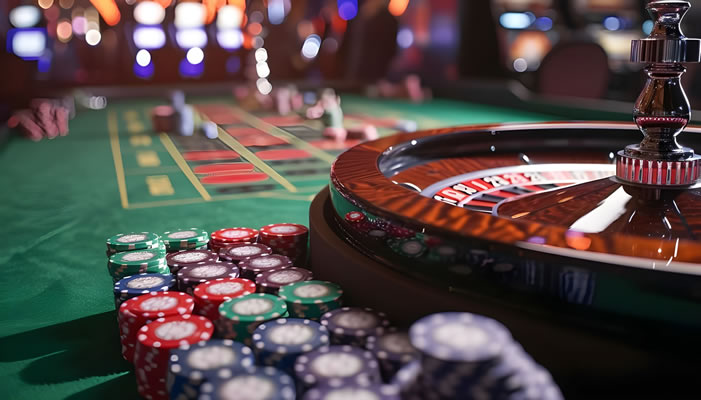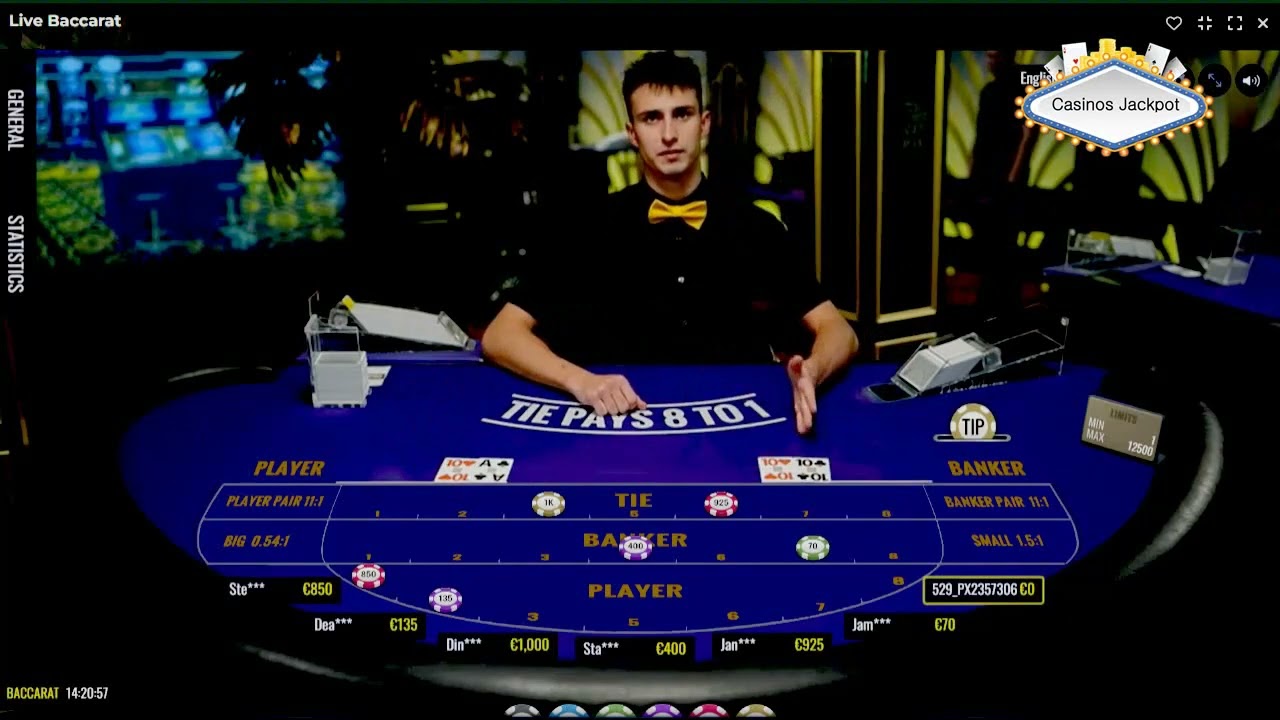The attraction of the jackpot is so strong that people from all walks of life are drawn to it. It presents a nearly irresistible pull is the possibility of winning a sizable quantity of money through casino games, participating in lotteries, or other games of chance. For countless individuals worldwide, the idea of becoming wealthy and financially independent in an instant holds great appeal. Several mental triggers play a role in the jackpot's attraction.
Main Points
- Why jackpots captivate us: The thrill of winning big entices people due to the potential for life-changing rewards.The dopamine-driven jackpot effect: The brain's response to potential gains, such as winning a jackpot, is driven by the release of dopamine, creating a sense of pleasure and drive.Risk and reward dynamics: Our draw to jackpots stems from the combination of risk with the possibility of reward, activating the brain's reward system.The psychology of hope and optimism: The chance of a big win impacts our mindset, fostering feelings of hope and optimism for the future.The impact of social and cultural factors: The jackpot’s appeal to us is influenced by societal values, cultural expectations, and peer pressure.
The ability to enjoy luxury without worrying about money and the possibility of becoming financially free is highly appealing to many. The attraction of potentially affording anything, such as designer clothes or far-flung travel, motivates people to strive for big successes. Also, a major part of the jackpot's appeal comes from its unexpected nature & unpredictability. The rush can’t easily be replicated the adrenaline rush that is felt when imagining a big win with a single ticket purchase or by spinning the wheel for a large payout. The allure of the jackpot also appeals to people's primal need for risk-taking and excitement.
The possibility of striking it rich offers the promise of a thrilling new life beyond the monotony of daily life. Many people are motivated to pursue the ultimate jackpot prize because they feel a deep connection in the concept of taking a risk & possibly emerging victorious. The thrill of making a big wager or the suspense of anticipating the outcome are just two examples of the many ways in which jackpots attract us because they represent human nature's need for thrills and adventures. The Function of Dopamine in Expecting Rewards. Dopamine is critical in our draw to jackpots, which is why jackpots are irresistible.
A neurotransmitter called dopamine is produced in response to enjoyable moments like indulging in delectable food, taking part in enjoyable activities, and yes, winning big. Dopamine plays a crucial role in the brain's reward circuits. Our brains release dopamine when we expect a possible reward, such as a lottery win, which makes us feel good and pushes us to seek more rewards. The dopamine-driven pursuit of huge wins. We are strongly motivated to seek out big wins by the strong attraction that is created when dopamine is released in response to possible rewards.
The possibility of winning the lottery causes the brain to release a large amount of dopamine, which produces an irresistible rush and joy. This dopamine surge that drives our desire to take chances in the hopes of landing a big win & draws us to jackpots. The dark side of dopamine: dopamine’s downside. The brain floods dopamine when one is expecting great success, which can cause addiction-like excitement of hope and excitement. Some people develop an addiction to gambling, which can be explained by dopamine's role in attracting us to jackpots. A strong psychological pull that can result in compulsive behavior & an inability to resist the allure of big wins is created when dopamine is released in response to potential rewards.
Our natural desire for risk and reward is strongly linked to the allure of the lottery. The chance of a huge win is a risky proposition that draws in our deep need for risk and excitement. Our interest in jackpots is driven by the risk and excitement that comes with chasing large wins. Many people are motivated by the idea of taking a risk and possibly hitting it big, which motivates them to take chances in the hopes of winning the ultimate lottery prize. Humankind’s history as early humans may also provide insight into the role that risk and reward play in attracting us to jackpots.
Risk-taking was essential for survival throughout our evolutionary past because it frequently meant the difference between obtaining essential resources and going without. This behavior became beneficial in obtaining food, shelter, and other necessities, it became hardwired in us to look for opportunities with high rewards. This natural inclination for risk still shapes our actions today, leading us to chase jackpots and urging us to take more risks in the hopes of striking it rich.
Risk and reward drive our pull to jackpots, which connects with our craving for freedom and autonomy. The chance to become wealthy presents an opportunity for limitless living and on one's own terms. The prospect of taking a chance and possibly making huge gains taps into our desire for control and personal agency, which motivates us to go for big wins in the quest for financial independence. A huge part of jackpot allure is the psychology of optimism & hope. The chance for a massive win provides a ray of hope for a brighter future, which bolsters our confidence and inspires us to aim for large wins.
It is hard to ignore the sense of hope that comes from the thought that one fortunate event has the potential to transform our lives. The potential for great wealth draws on our desire for optimism and hope, pushing us to take risks in the quest for future prosperity and financial stability. The psychology of optimism and hope also deeply influences our mindset in the pursuit of big wins.

We are bombarded with messages that strengthen the allure of striking it rich, with media portrayals of overnight millionaires to societal norms to attain financial success. Our view of jackpots are shaped by the ubiquitous influence of social and cultural factors, which also feed our addiction to jackpots and encourage us to gamble in the quest for financial security. Peer pressure and social norms are just two more examples of how cultural pressures shape our craving for jackpots. Seeking large victories is seen as an desirable, glitzy, and thrilling endeavor in various social groups.
People may chase large wins in an effort to gain validation or impress others by experiencing the pressure to keep up with friends or coworkers who have made money through gambling. The human desire for recognition is further evidenced by the societal influences on our attraction to jackpots. What draws us to jackpots and encourages us to take chances in the hopes of winning big is the chance for wealth and fame, which can further improve one's social status. The Addictive Nature of Jackpot Pursuits. The dopamine-driven reaction to prospective rewards can set off an addictive cycle that causes individuals to take on more risk in the hopes of hitting it big, often at a huge cost.
Chasing losses can create a harmful pattern that can devastate an individual's financial stability and overall happiness. Jackpots' Dark Side: Mental Health and Relationships. Pursuing big wins can take a toll on personal relationships and mental health in addition to financial ruin. People who develop an addiction to gambling frequently struggle with ever-growing debts & money problems, which can leave them feeling anxious, depression, and feelings of despair.
In addition, chasing jackpots can damage personal relationships, leading to isolation & loneliness. The necessity of Support & Awareness. The dangers of chasing jackpots make it clear that individuals struggling with addiction need more understanding and support.
Society must understands the possible risks associated with chasing jackpots and offers assistance to those in danger of addiction. By taking these steps, we can endeavor to establish a safer environment and more supportive for those struggling to resist the lure of the big win. Create healthy gambling habits to allow people to control the psychological effects of jackpot pursuits.
Limiting the time spent and amount of money invested on gambling can help people stay away from compulsive behavior patterns and reduce the risks in gambling for big wins. For individuals struggling with gambling addictions linked to chasing jackpots, getting help from friends, family, or professional counselors can be a great resource. Individuals can protect themselves from developing compulsive gambling behavior patterns by adopting healthier coping strategies for managing stress and anxiety.
People can discover healthy ways to manage their stress without turning to high-risk gambling activities by exercising regularly, practicing mindfulness, or finding enjoyable hobbies and pastimes. In conclusion, people from all walks of life are fascinated by the jackpot because of its irresistible attraction. Our attraction to big wins is driven by numerous mental triggers, ranging from the release of dopamine in reaction to possible rewards to our innate desire for risk and reward. However, in order to prevent developing compulsive gambling behavior patterns, people should be aware of the possible risks involved in jackpot pursuits and develop strategies for managing the psychological impact of these pursuits.
People can experience the excitement of chasing large wins without giving in to the negative effects of compulsive gambling behavior by comprehending the psychology underlying our attraction to jackpots & adopting positive, responsible gambling behaviors.

FAQs

Why are we drawn to huge jackpots?
Our interest in large jackpots is rooted in the human brain's reward system. When we think about winning big, our brains produce dopamine, a neurotransmitter linked to joy and reward. This surge of dopamine creates a feeling of excitement and creates hope, which can be highly addictive.
What keeps people playing after they lose?
Gamblers keep playing despite losses due to the effect of near-miss events. When individuals come close to winning but ultimately fall short, it triggers a live casinos providers surge of dopamine just like that of a real win. This close-call event can create a sense of hope and encourage continued play, despite previous losses.
How does social pressure fuel jackpot attraction?
Social factors are key in the attraction to winning big jackpots. The visibility of jackpot winners in the media and among friends can create a sense of social proof, leading individuals to think winning is possible and worth pursuing. On top of that, the excitement and celebration surrounding jackpot wins can influence others to participate in similar activities.
Are there any potential negative effects of the attraction to winning big jackpots?
The attraction to winning big jackpots can have negative consequences, particularly when it becomes compulsive or addictive. Constant gambling in pursuit of big wins can result in financial strain, relationship problems, and mental health issues. Moreover, the craving for jackpots can lead to unrealistic expectations and skew one's view of odds.
What are healthy ways to handle jackpot attraction?
Individuals can manage their attraction to winning big jackpots with smart strategies by setting limits on their gambling behavior, practicing responsible gaming, and seeking support if they suspect their interest is turning into an issue. It's important to keep gambling in perspective and to prioritize enjoyment and entertainment over obsessing about winning big.